Every organization is perfectly designed to get the results it is getting. Most organizations, no matter how effective, believe that they are leaving something on the table in the way of results. One common reason is the lack of fit between organizational design and strategy.
One critical area of focus for every company is how it is structured-its ability to leverage its competencies and execute its strategy. Leaders wrestling with this issue often find questions like those below helpful in their deliberations.
Roles & Work Design
- Are key organizational roles and work designed appropriately? Are they as broad as possible, creating an opportunity for growth and challenge, while still focused enough to create clarity on expectations and decision-making?
- Do all members of the team (organization) understand their roles and how they interact in key work processes? Does each person understand how his or her job contributes to the creation of value for customers, and the delivery of targeted organizational results?
- Do leaders have a clear understanding about which jobs, roles are most pivotal in delivering targeted results?
- Are systems, processes In place to effectively manage individual and institutional accountability?
- Do all organizational activities add real value?
Structure
- Is the current organization structure the best approach for meeting the needs of the business?
- Are reporting relationships clear and effective across teams, departments, functions and business units?
- Is the organization structure effective in managing issues, challenges where cross-functional coordination or teams are required?
- Are “spans of control” appropriate, effective?
- Does the organization structure facilitate leadership development and career growth?
- Is the organization making effective decisions on what it should do in-house, and what it should outsource?
People Systems
- Do we have a compelling employee proposition? Is our recruiting strateging and selection process ensuring we have the skills and staffing capacity required to execute the organization’s strategies and achieve its goals?
- Are training and development programs effectively equipping people with the necessary skills to match work requirements? How do we know this?
- Does our leadership development process deliver the required leadership qualities and capacity necessary to succeed in the organization?
Information Systems
- Do information systems materially contribute to accomplishing the organization’s strategic goals and the creation of value for customers?
- Does everyone in the organization have access to the information they need, when they need it, to effectively perform their roles?
- Are information systems flexible enough to adapt to changes in market conditions, unique user requirements, business growth, etc.?
- Are systems in place that assure that the development of new information applications meet real user needs, and are appropriately prioritized?
Decision Making
- Are decisions made at the most appropriate levels within the organization? Does current structure have a positive or negative impact on decision quality and speed?
- Do staff members understand their role in the decision making process?
- Does the staff understand how key decisions are made? Is it clear to individuals when they have authority to make a decision versus when they’re providing input and recommendations for a decision made somewhere else?
- Are decisions based on a rigorous and honest assessment of the necessary facts?
- Does the decision making process effectively balance the need for facts and the need to take definite and timely action?
Reward/Recognition
- Do the reward systems support the behavior the organization is trying to produce?
- Are compensation levels appropriate for the work and roles in the organization design, given market and competitive conditions?
- Are incentive systems in place that communicate organizational priorities and create staff enthusiasm, commitment?
- Does the organization effectively recognize and compensate beyond individual and functional assignments, e.g. for cross-functional initiatives or team assignments?
Change management
- Are the business challenges and necessary changes to the current business model clear to all employees?
- Is the organization effective in creating the necessary passion, energy, sense of urgency for pursuing required change programs?
- Is the organization effective at following through on improvement/change programs?
- Does the organization learn effectively from its mistakes, and apply these “lessons learned” effectively to new situations?
Core competencies/building institutional skills
- Does the organization have a clear understanding of its institutional competencies, or skills, that separate it from its competition, and that build real value for its customers?
- Are programs, initiatives in place to continuously improve these core competencies?
- Are growth plans, the development of new products and markets, rooted in a solid understanding of these institutional skills, competencies?
Process redesign
- Can the organization identify the critical processes it must manage well in order to serve its customers, create sustainable value?
- Does the organizational periodically review these core processes for effectiveness and improvement opportunities?
- Does the organization use technology to effectively redesign its critical processes, from scratch if necessary?
- Does the organization know where it’s critical process “bottlenecks” and capacity constraints are? Is there a plan in place to address them?

